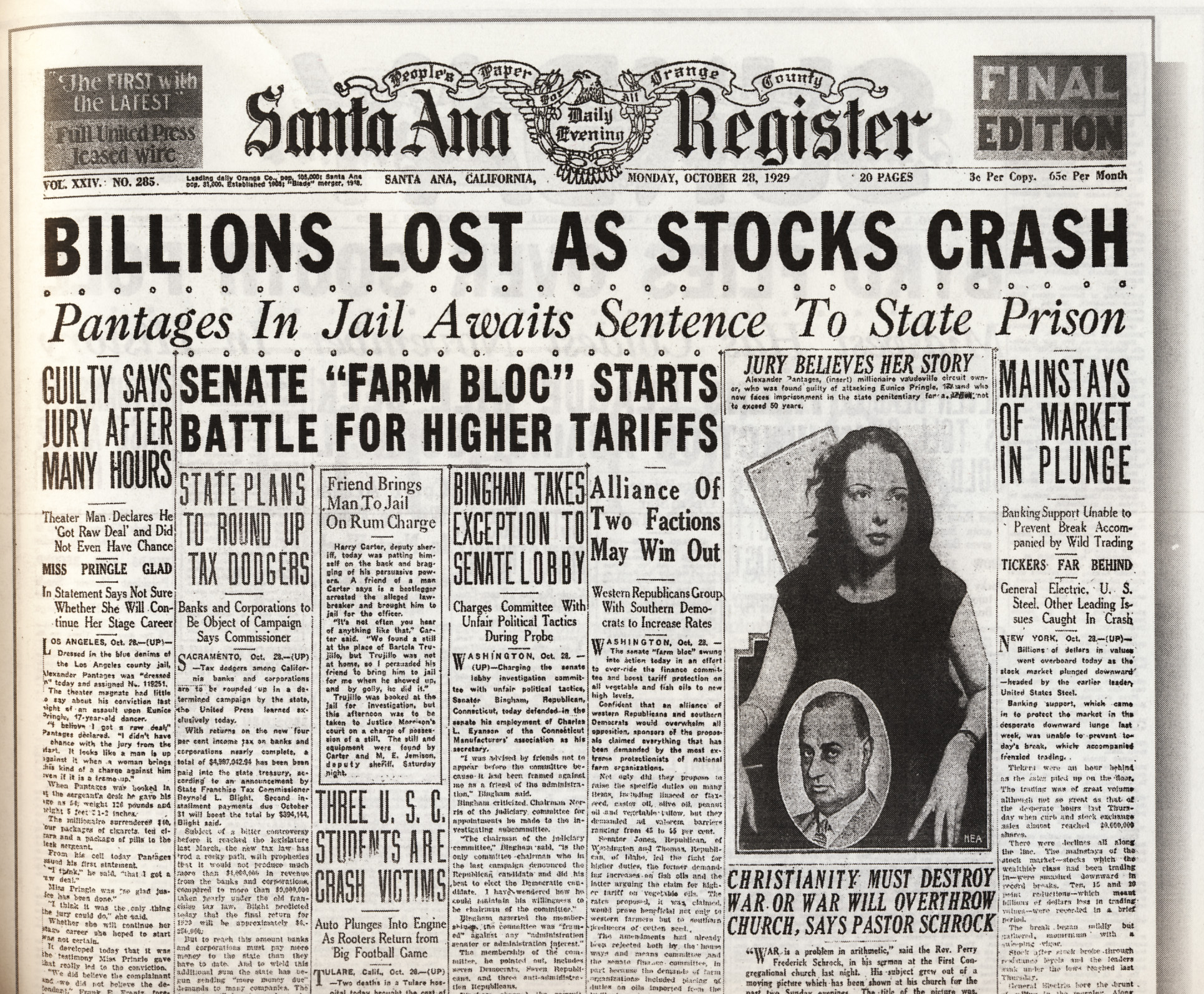Since the end of the immediate post-War depression in US financial markets, occurring in 1922, share prices rose dramatically. Naturally this encouraged a speculative boom and by 1929 the financial history of the US had never been more hay-wire. Nearly ten million investors, many hardly knowing where Wall Street was, bought shares not for income but to sell for a quick profit. Not only that, but they bought without paying cash, using ‘credit’ or ‘on margin’. It was bound to head for disaster.
By summer’s end, 1929, stock prices multiplied by four, but then investors started selling. As a result share prices shot down quicker than creeping up, and by October everyone appeared to be selling, not buying. The 14th October became known as ‘Black Thursday’ with 13 million shares sold, followed by a ‘Black Tuesday’ (29 October) when 16 million shares went at a loss of $10 billion, which happened to be twice the amount of money in circulation in the US at the time! Something had to give, and it gave.
This was the worst day in the history of the US stock market, and repercussions would be international. Thousands of investors were ruined in a question of hours, and loans from overseas stopped coming, so that European countries were pushed over the brink into depression. Investment plans across the US were abandoned, so that industries were badly damaged; but they were also badly hit by the removal from the economy of millions of dollars of consumer spending. In addition, investors who had bought shares ‘on margin’ were called to pay up in cash, which they did not have, and were thus forced to sell possessions such as their homes, cars, jewellery etc. One minute Americans wearing mink coats were dining at the Ritz-Carlton and the next they were hobos living under a bridge. Many killed themselves in shock, and the sidewalks in the Financial District resounded to the crunch of falling bodies.
Industrial production slumped near zero and up went the unemployment figures, reaching over 3 million in March, 1930. Then ‘The Great Depression’ began . . .










Leave A Comment